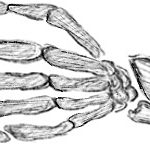Dennis was obsessed.
He went to the travel agent and, when they asked him what they could do, he blurted out: “I’ve got to get to Salzburg.”
“When?”
“Now.”
He couldn’t believe his own words. The idea of Christmas away had been brewing for a while, but the insistence on Salzburg was coming from a part of his mind over which he obviously had no control.
For an outrageous sum of money he purchased a first class ticket to Zurich, from where he would take a train to Salzburg.
On his return to the office, Dennis pondered a difficulty. It was clear he didn’t want “the powers that be” to know he was running off to Salzburg for no reason. He couldn’t even think of a good lie. Frowning, he decided it would be easier to ask forgiveness than to manufacture permission. Besides it was his holiday. Special agent or not, they could live without knowing where he was for seven days. Furthermore, he hadn’t booked the ticket with any tricky false IDs or anything.
“Fie on them,” he thought.
He felt relieved after shaking off the Agency’s burdensome parental sense. He’d feel even better if he knew why his brain was ordering him to Austria.
“Zurich,” he muttered to himself, “is frankly bloody cold.” He was surprised to find he was talking to himself. Another great faux pas for a special agent. You were trained not to talk to yourself, even when sleeping.
He walked across the station to his train, whistling a Christmas carol — Good King Wenceslaus. He toted a sturdy back pack that was unusually light due to the absence of weapons and other such spy paraphernalia. He realised how much more fun travel could be with light baggage.
A fast, high quality Swiss train whisked him through fantastic Alpine scenery. The sun was rising and gave the absurdly clean snow a blinding glare. He thought of German friends and remembered their comment that “the Swiss must get out every morning and clean the mountains.” He snickered and then wanted to cry. They were dead. Years ago, just before German Reunification, they were some of last the victims of the East German secret police. Executed for helping a foreign spy.
Dennis wiped at his warm eyes. He thought he had gotten over that one. He thought wryly he probably had more baggage in his head than there was in the whole train.
There was a brief stop before the Austrian border. An older gentleman boarded the train and sat near Dennis. By this time, Dennis was engrossed by an old Adam Hall novel and was snickering as quietly as he could manage. The old man leaned from his seat, facing across the way, and spoke to Dennis in German. But Dennis didn’t stir, even though he knew the language. He waited for the gentleman to actually touch him, if he really wanted to talk so badly.
The Austrian man did touch him.
“Bitteschoen, haben sie die genaue Zeit?”
“I’m sorry?”
“Ah. You are English?”
“Canadian, actually.”
“Kanadier?”
“Yes.”
The Austrian looked somehow familiar to Dennis. A déjà vu effect, surely. The massive whiskers obscured much of the facial detail. Dennis was still scanning his face when the man pointed to his watch, which was ancient and stopped.
“Ah, yes. 12:34.” Dennis showed him a digital display.
“Danke. Thank you.”
“No problem.” Dennis firmly resumed reading his book. The man had spooked him. For no discernible reason.
It was sometime later when the man spoke up again: “You are on a job in Austria?”
Dennis was startled. “Ah, no. Holiday.”
“Hmm.”
The conversation halted. The older man rose to depart from the train at a stop just before Salzburg. He pulled from the rack a small, battered case. There were designs on the case. All were of scenes of conflict. Men and women fighting, armies fighting, people arguing. Dennis was briefly mesmerised by the images. It reminded him of Bradbury’s Illustrated Man.
As the old man walked past, he said: “Aufwiedersehen, have a good visit in Salzburg.”
Dennis unprofessionally snapped his eyes away from his book and stared silently at the man as he left the train. When was Salzburg mentioned?
In Salzburg, Dennis picked a huge old Bed & Breakfast establishment. B&B wasn’t a term used in Austria; they were typically called a Gasthaus. He used random choice as a deciding factor. If he didn’t like it, he’d move. The Gasthaus was just outside town and was a massive place. Hilda, the almost burly proprietor, treated Dennis as if he were family.
It was a homey sensation. His room was small, but had a view of the mountains. The tiny bed had a gigantic duvet for staying cosy and warm. In the main part of the house was a huge sitting room with large chairs and hundreds of books in German, English and French. Dennis figured he was in heaven. They had an enormous spy book collection.
Since he had no real idea why he was in Salzburg, he decided to walk all over: through the castle, into the church where Julie Andrews married Christopher Plummer in “The Sound of Music” and up the steep path to Hohensalzburg, “the largest fully preserved medieval castle in Europe”. The vistas were stunning and the weather biting.
He tried as many different drinking and eating establishments as he could find. He never tired of Wiener Schnitzel and had developed a great respect for Austrian draught beer.
On the twenty-third of December, as twilight was merging into darkness, he walked back toward his Gasthaus. He took a short-cut through the gardens of Schloss Mirabell. In summer the flowers are impressive, but the beds were currently mounds of frozen dirt. The stone Gnomes, however, were still in the positions they had been in for ages. Each of the figures was unique. One carried grain for brewing and another carried a flute. As Dennis walked into their circular garden, he could have sworn he heard whispering. He deduced it was the wind whistling through the scarf tucked close to his ears. When he was about to leave the garden, one of the Gnomes jumped off its pedestal and barred him from leaving.
“Holy shit.”
“Shhh,” he heard from behind.
Dennis whirled about to see the other Gnomes leaving their pedestals.
“Dennis,” said the grain-carrying Gnome, “we have to talk to you.”
“So talk.” Dennis was buying time for his head to sort out reality. He had seen these statues before and they had shown little mobility. He also tried to figure out if they were speaking German or English. Strangely, he couldn’t tell.
“OK, thanks,” said the Gnome. The other eleven Gnomes were now all off the pedestals and looking at Dennis as if he were the unusual creature. “You’re staying at the Kaltenegger Gasthaus, right?”
“Yes …”
“Excellent,” replied the Gnome. “We got the right one, guys.” There were titters and quiet cheers from the other Gnomes.
“You see, every Christmas for the last few hundred years, that family has always had a tragedy. And you,” the Gnome poked a stubby finger into Dennis’ stomach, “can fix their problem.”
“Ah,” said Dennis. His mind was saying: listen watch learn.
“But you’ve got to be ready.”
“In what way?” asked Dennis.
“Well, you know. You bring extra stuff on trips. You didn’t bring any of that this time. You’ve got to get ready.”
And suddenly all the Gnomes snapped back into place as if they had never left the pedestals. Dennis stood with his face devoid of expression and his jaw slack.
An older couple, arms entwined, entered the garden. “Guten abend,” said the man.
“Gruess Gott,” replied Dennis.
Back at the Gasthaus, Dennis had decided he needed a good think. Hilda had tea made and she gladly gave him a cup. He sat in the drawing room and sipped on the tea and thought. There were two possibilities. He was mad or something was going on. He rejected the first one on the grounds that it was too simple. From the Gnome, he remembered two salient points. The Kaltenegger family had a history of tragedies and that he had to be “ready”. All Dennis could deduce from that was he needed some of the spy gear he had left at home.
As he mulled over the events of the day, people started arriving at the house with some frequency. They seemed to be members of the family. Dennis suspected he was the only actual guest in the house. The first to arrive were older men and they looked at Dennis with suspicion. In the kitchen, they held hurried discussions with Hilda. Hilda assured them Dennis didn’t speak German.
Dennis sipped his tea and smiled and, with no shame, proceeded to eavesdrop.
“What is he doing here?”
“He is a guest, of course,” said Hilda.
“Why haven’t you made him leave?”
“That would be rude. And he never said how long he was staying. How should I know he’d be around at Christmas? He might leave tomorrow.”
“But much of the family is arriving tonight and what if he finds out about the curse? Where would your business be then?”
“Bah. Karl, you’re ridiculous. We have to wait.”
“I will not risk a strange American seeing someone die!”
“Ich bin Kanadier.” Dennis had just silently entered the kitchen. In German he continued: “I have to apologise for not telling you I speak German, Mrs. Kaltenegger, it has to do with my work that I avoid letting people know that. I have a couple of requests of you. I would like to stay at your Gasthaus over Christmas and I would like to help you with your ‘curse’ as you put it. I might be able to help.”
“How would you know?” barked Karl.
“A Gnome told me.”
As far as Dennis could gather, the story started about 350 years before when a powerful Bishop, who dabbled in the dark arts, cursed the Kaltenegger family. Apparently, a leading member of the Kaltenegger family had embarrassed the clergyman by making public the Bishop’s pacts with the devil. In revenge, the Bishop had called on the Devil to make sure a member of the Kaltenegger family would die every Christmas Eve for all time. The family had tried to combat this annual loss by raising huge families. But, over the generations, they had been reduced to twenty people. The family congregated every Christmas at Hilda’s huge house to be together to comfort each other for their imminent loss. Dennis analysed the history of the deaths. Hilda’s records consistently showed that every year there was one death that always occurred on Christmas Eve between sunset and midnight. The cause of death rarely varied from the theme of heart failure. The story postulated that the figure of Death appeared and frightened the soul from his victim. Hidden away, Hilda had a painting by a family member that showed the classic figure of Death, with his cloak and scythe, taking the soul from a family member. In the painting the victim was in another room. Dennis was struck with an idea.
“Was there ever anyone with the people who died?”
“You mean at the moment of death?” asked Hilda.
“That’s right,” said Dennis.
The family ruminated. There were now fifteen people in the kitchen drinking coffee, tea and beer, all fascinated with Dennis’ question. Eventually they decided that, as far as they could remember, the victims had all died alone.
“Interesting,” said Dennis.
Dennis rose early on Christmas Eve and decided to go out and purchase a firearm. He had no contacts in Salzburg and he figured getting to Vienna on Christmas Eve was mad. So, in the town, it took time to locate someone to sell him a gun. The choices of illegal weapons were few. He found himself faced with buying a .357 Magnum, an ancient weapon. Dennis realised he had been spoiled by his modern slim-line, laser-sighted Colts. He sighed, paid an outrageous sum of money and pocketed the gun.
When he had arrived in Salzburg he had rented a car, but found he had done little but walk. On that Christmas Eve, he took the car and drove into the Alpine countryside to find a place to test the gun. First, he cleaned it and removed grime from the handle. It was at this time he noticed that a previous owner had carved a small dragon into the gun butt. The design was rather detailed and Dennis wondered how it had been done. The dragon had a lance through it. The spear pierced the creature’s lower back.
He tried the gun and was appalled by the resounding blast. How inelegant. But at least it worked.
The sun was just beginning to set when he returned to Hilda’s Gasthaus. The whole family was present and a party atmosphere was under way. Despite the scheduled death, they reminisced about past successes and failures in their businesses and personal lives. The presence of Hilda’s Canadian guest, with ideas of preventing their annual tragedy, added to the frivolity. Their sang-froid shocked Dennis, but then he realised that after 350 years they’d become accustomed to Death.
The fun subsided slightly when Dennis insisted they pick partners and never be separated. Even when taking a leak. Dennis had earlier noticed the statistics for people dying while on the toilet were too high. No one was to be alone, period. All unusual events, be they visual or auditory, were to be reported to Dennis immediately.
The partying continued and midnight drew upon them. By 11:30, the family was getting rather excited as Dennis had calculated the average time of death to be around 10 PM. At 11:50, an old man with huge grey whiskers walked into the main room where all the Kaltenegger family was sitting. It was the man from the train to Salzburg. The one whose watch had stopped. The battered case now had different scenes of horror. Hilda recognised an image of her brother who had died three Christmases before.
“Jesus Christ,” said Dennis.
“Death, actually,” replied the old man. “I’m so glad you recall me Dennis. I knew I’d meet you again, but I didn’t know when.
“Get lost.”
“Well, I will, but I have to take a life you see, and you’ve made it more difficult than usual.”
“You’re out of luck this year,” said Dennis. The agent’s mind was at full awareness. He watched for the old man’s move. Despite the supernatural aspects, this did not make a difference to his training. A confrontation was a confrontation.
“Surely you don’t think you can stop Death?”
“I have to try.” Here ends the bravado section, thought Dennis. He has to act now.
The old man turned, as if he considered leaving. The room was silent. Death twisted back to face Dennis and was abruptly a lizard. In a wink, Death had become a dragon. The beast leaped over Dennis and was bounding toward Hilda. She was his intended victim.
Of all the Kalteneggers, Dennis knew Hilda best. Was Death’s choice deliberately intended to upset him? As this thought passed, Dennis smoothly pulled the Magnum. He remembered the carving of the dragon on the gun butt and fired a quick shot to the creature’s lower back. The scream was unearthly, like an inhuman wail of twisting metal. The whole family held their ears. The Death-dragon was crippled, but tried to claw itself toward Hilda, seeming to want only to touch her. Dennis went for a head shot and hoped the screaming would stop. Despite obliterating the head with two rounds, the shrieking continued, but the reptile’s movement stopped. The body of the dragon and its gore began to shimmer and in minutes the sound and image faded.
Dennis was exhausted. He stared at Hilda in disbelief. She smiled at him.
The clock on the mantle struck twelve.
It was Christmas Day.
They partied well past dawn.









